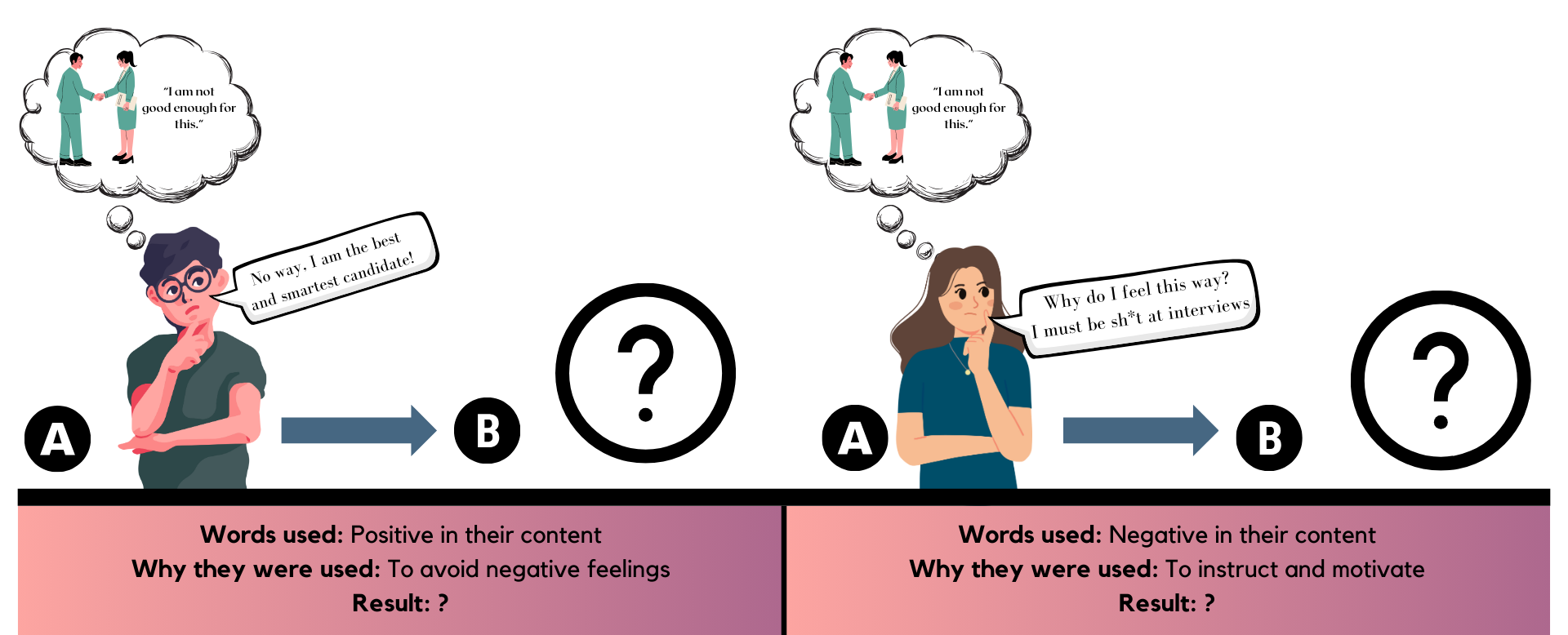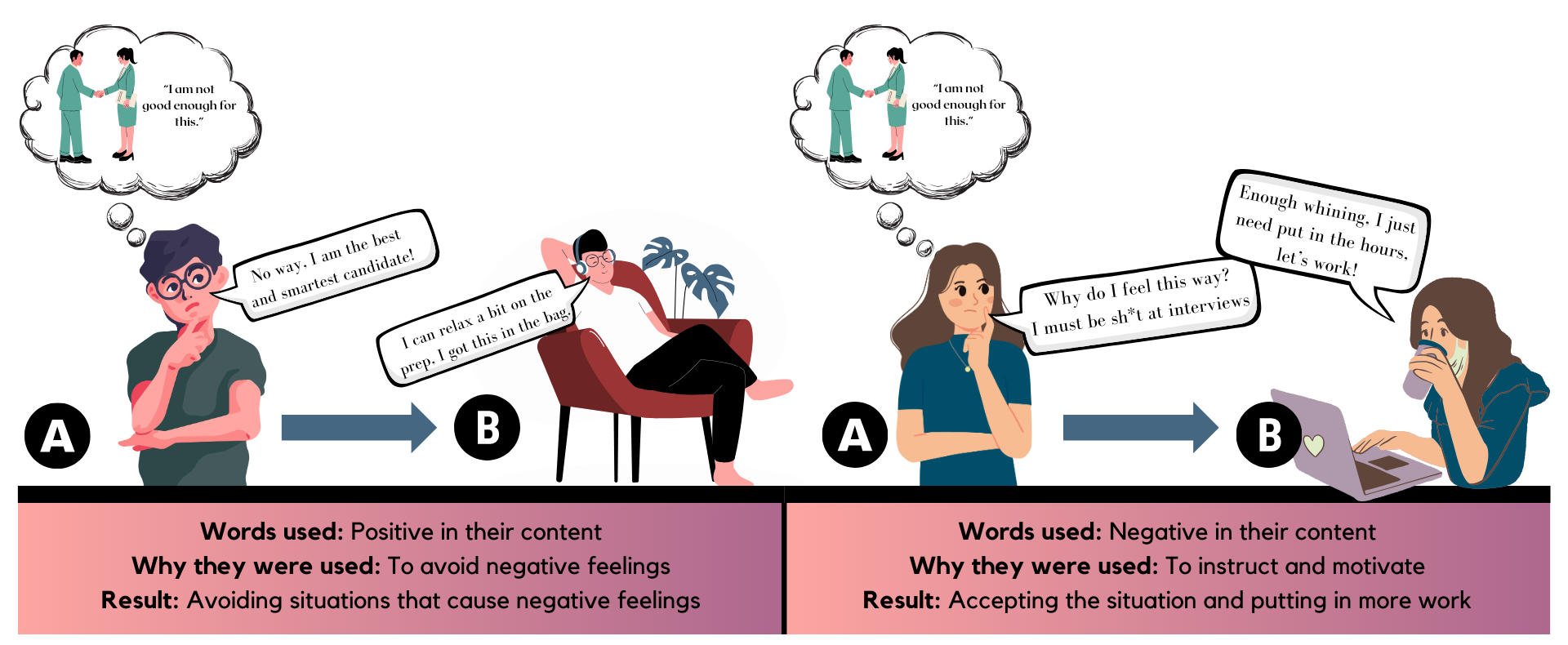No, Negative Self-Talk Is Not Always Bad.

Table of Contents
- Negative and Positive self-talk - What we get wrong
- So, is everyone just lying about Positive self-talk?
- Operation 🔱
Negative and Positive Self-Talk - what we get wrong
Negative self-talk isn't always bad, and positive self-talk isn't always good.
Replacing every negative thing you say with something positive won't always get you the results you want.

Self-talk is a hot topic, with countless tiktoks describing how positive self-talk turns your life around and helps you become more self-compassionate. As far as TikTok psychology goes, they are pretty on point with the research on increasing self-compassion.
However, research on performance and self-talk paints a different picture on positive and negative self-talk. Showing our outcomes don't always reflect the words we say to ourselves. That negative self-talk isn't always a bad thing.
Let's take the following hypothetical: A boy and girl have an interview for the same job in a week. Both of them feel like they aren't good enough. As a response...
The boy uses positive self-talk and the girl uses negative self-talk

Who will end up preparing better and getting the job? Going off the popular rhetoric, it would have to be the guy. Right? Frankly, my dear, it's not that simple.
If we peek under the hood and look at the why, it goes deeper than the words we see

The guy uses positive self-talk to feel better, its purpose is to avoid feeling insufficient. If negative emotions about the interview come up, he just tells himself he is "the best" and avoids prepping. Why prep when you are already the best?
Contrastingly, the girl has incredibly negative self-talk. Saying "I must be 💩" and "Enough whining." However, she uses those words to instruct and motivate herself to put in more work. Instead of avoiding the negative feelings, she accepts them and faces them head-on.
With that in mind, who would get the job now? correct answer: the girl.
The words may be negative, but the outcome is dependent on how we use the words.

So, is everyone just lying about positive self-talk?
No. More often than not, positive self-talk is preferred for performance. I am simply trying to show you that just because the words are positive or negative doesn't mean the outcome will always reflect that. It is not that clear-cut!
So, why is that?
Most of us have negative phrases like "I can't do anything right," ingrained in us from past experiences. They lay the foundations for what we believe to be true. If our entire belief system is shaped around us not doing anything right, then regurgitating opposite positive phrases like "I do everything right" every day in the mirror will feel like a lie. If anything, it will piss you off.
For self-talk to have an effect, belief in what you are saying is a key factor.

So what's the solution?
Should you start ripping yourself apart with negativity in hopes that you will succeed enough times for positive self-talk to work?
Thankfully, no, not at all.

In our High-Performance Arsenals, mental skills are the weapons, and Self-talk is one of the most important.
Self-talk is your Trident 🔱

Each prong represents a different type of self-talk content
The Left Prong is Neutral Self-Talk: Self-talk is irrelevant to the task content.
The Middle Prong is Positive Self-Talk: Self-talk is positive in its content.
The Right Prong is Negative Self-Talk: Self-talk that is negative in its content.
As we learned, the content of self-talk will not determine the outcome, rather it is how we use that self-talk. Known in literature as the "functions" of self-talk.
To spice it up a bit, let's call it the 🔱's attack combos.
In the next newsletter, we will discuss the attack combos for the 🔱. Covering associative and dissociative self-talk as well as instructional and motivational self-talk. Not only that, but we will also go over a protocol to help you use, train, and master this awesome weapon.
So that when you need to perform at your highest level, you know that you can reach into your arsenal and pull out the 🔱
